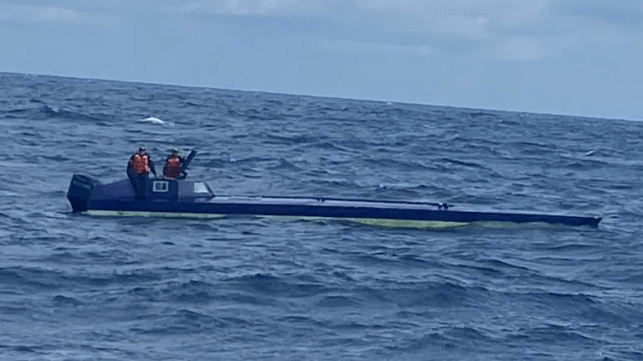International Sweep Catches 225 Tonnes of Cocaine

An international operation has captured 225 tonnes of cocaine in the span of just 45 days, including a massive bust by the Colombian Navy that confirmed a new ultra-long-distance smuggling route.
The Colombian Navy intercepted one semisub off the coast of Clipperton Island and found five tonnes of cocaine on board - an abnormally large amount - along with a fuel supply sufficient for a trans-Pacific transit. The smuggling vessel was headed for Australia, about 10,000 miles away.
"Initially, these boats were used mainly to take the drugs out of the country and move them off the coast of Colombia and then transfer them to ships," a security official told AFP. "It has been found that these semi-submersibles, sometimes even submersibles, are now increasingly sophisticated, with very fine engineering."
Australia is a valuable market, and the profit margins could pay for the extra effort: Australians consume more cocaine per capita - and pay more per dose - than almost any other nation. According to Colombian security sources, the wholesale price per kilo of cocaine delivered to Australia can run up to $240,000, about three times the price of pure gold.
Australia is so far away from the producing regions in South America that the goods are normally smuggled via shipping container. The journey is a long and dangerous one for the roughly-built semisubmersibles used by Colombian smugglers; these handmade boats are normally used on a short northbound trade lane to Central America.

that matters most
Get the latest maritime news delivered to your inbox daily.
The service intercepted five more narco-subs over the span of the 45-day operation. Altogether, the 62 nations participating in Operation Orion netted 225 tonnes of cocaine - nearly 10 percent of annual global production - along with 1,175 tonnes of other drugs, primarily marijuana. Colombian authorities alone arrested 400 people in connection with the seizures.
The international sweep uncovered new details on the linkages between organized crime groups in the cocaine industry. The business has become decentralized, and it no longer resembles the vertically-integrated cartels of yesteryear, said Vice-Adm. Orlando Enrique Grisales. Instead, different groups specialize in different parts of the value chain - like production, transport, security, or vessel construction - and they conduct business with each other to complete each shipment.
